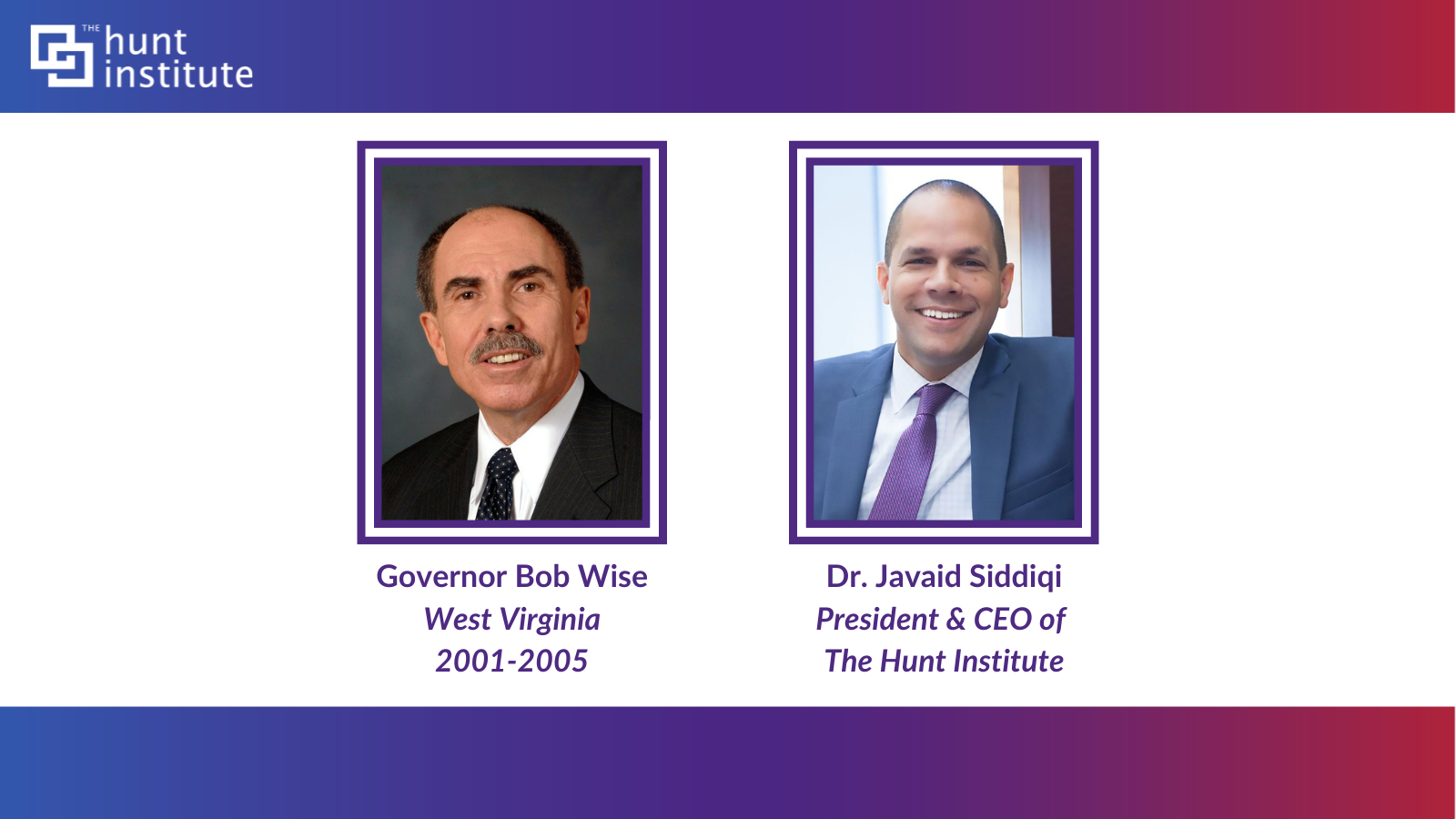

September 1, 2022
Authors: Governor Bob Wise of West Virginia (2001-2005) & Dr. Javaid Siddiqi, President & CEO of The Hunt Institute
In just two months, 36 states will hold gubernatorial elections, 35 states will have contested senate seats, and all 435 seats in the House of Representatives will be up for grabs.
In many ways, these elections will serve as a referendum on what Americans want out of their government post-pandemic. From healthcare to the economy to our safety, it seems as though every facet of American life is on the ballot this fall. This Labor Day, as political campaigns head into their final stretch and candidates from Alaska to Florida make their case, it is critical our future elected officials understand that now, more than ever, our social, economic, and national security depends upon every child receiving a quality education.
Over the last two and a half years, people from various walks of life across the U.S. have shared a common experience. In communities around the nation, workers started their days with a COVID swab or a temperature check. Workplaces shut down and people began working from home. We all learned to adapt and work with others over a tablet or computer screen. And in the heart of the pandemic, school closures impacted more than 55 million students in 124,000 public and private schools.
The challenges and impacts of the pandemic were, and continue to be, non-partisan. They have impacted all students and families – which is why we will need non-partisan solutions and approaches to transform our educational systems and solve the problems that have emerged in our new post-pandemic “normal.” From polls to public meetings, parents and voters have made one thing clear: we need to invest in our children.
Through our work on the COVID Constituency, we have heard directly from parents and voters about what matters to them in education. While topics like critical race theory and book banning have dominated the airwaves, we learned that parents’ concerns lie elsewhere.
Sixty-three percent of parents believe the pandemic has been disruptive to their child’s education, and a majority of parents (57 percent) nationwide have said that the pandemic has also been disruptive to their child’s mental and emotional wellbeing. Additional counseling supports and mental health services are top of mind for voters and should be a priority for education leaders and policymakers. They also know that lost classroom time means their children will require a more personalized educational experience – one that responds to their individual learning needs – which is likely why 88 percent of voters are in favor of individual learning plans for all students.
We are not the only organization hearing this. Just a few weeks ago, The Hunt Institute hosted a webinar featuring national parent engagement experts, including the National Parents Union and Learning Heroes, who shared similar findings among parents and families.
Unlike elections of the past, where candidates often make broad promises and hope the political landscape post-inauguration day is suitable, we already know we have the resources to enact meaningful and transformational change.
More than $120 billion has been allocated to states as part of the American Rescue Plan, and we have until September 2024 to use these one-time funds to restore and improve our schools. Across the country, states and districts have an opportunity to invest in workforce training, expanding and diversifying our educator workforce, mental health counseling, broadband internet access, high-impact tutoring, and more.
So, this Labor Day, as we approach the end of summer and the zenith of political campaigns, The Hunt Institute asked several of its Hunt-Kean Leadership Fellows and Advisory Board Members to cut through the noise and tell us what education issue candidates should be focusing on this year:
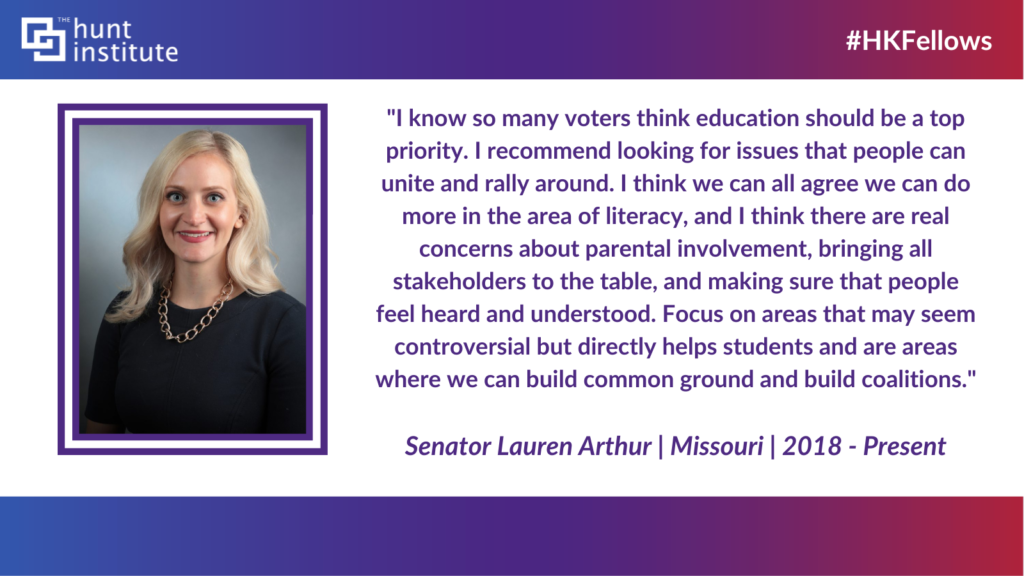
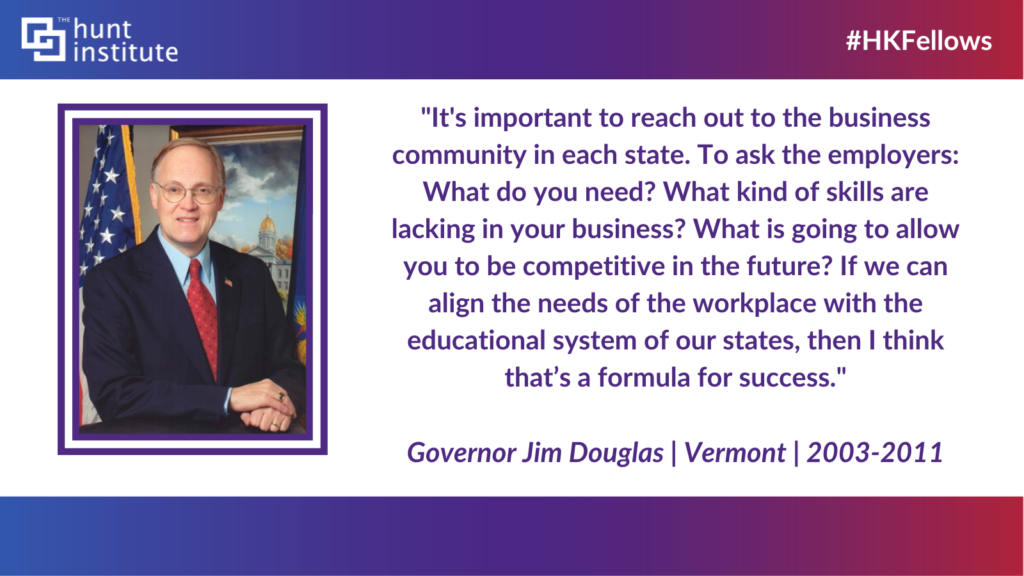
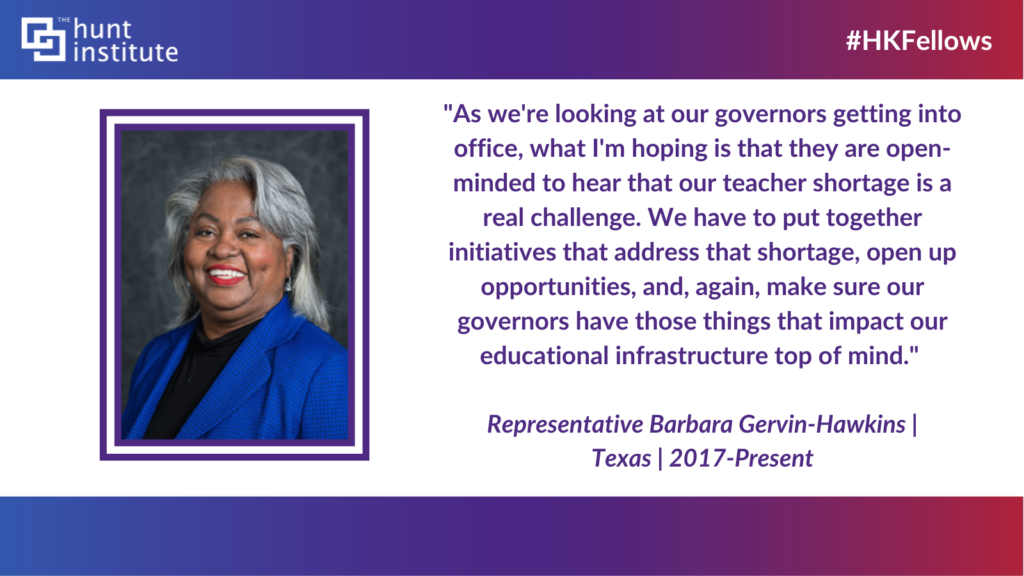
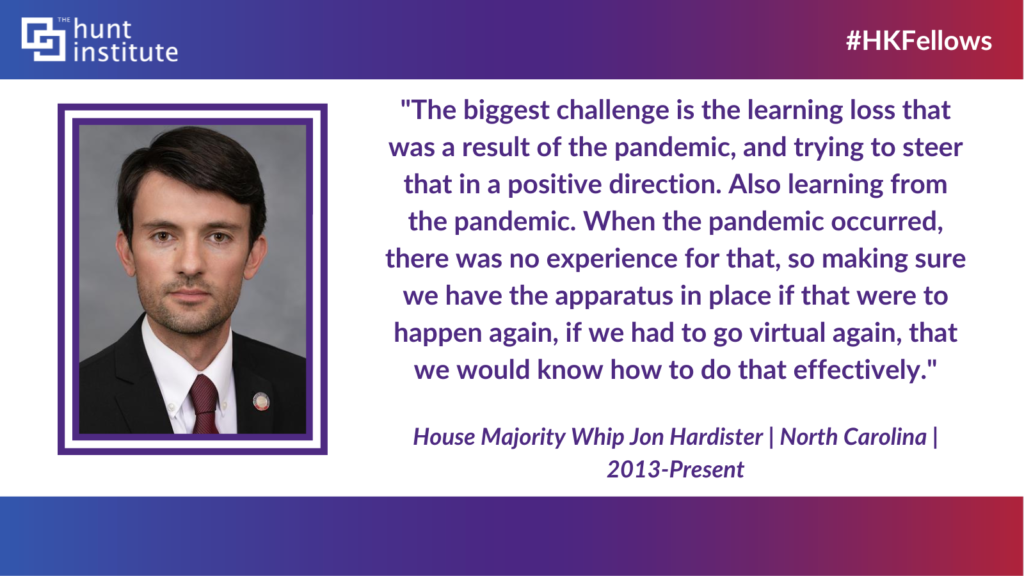
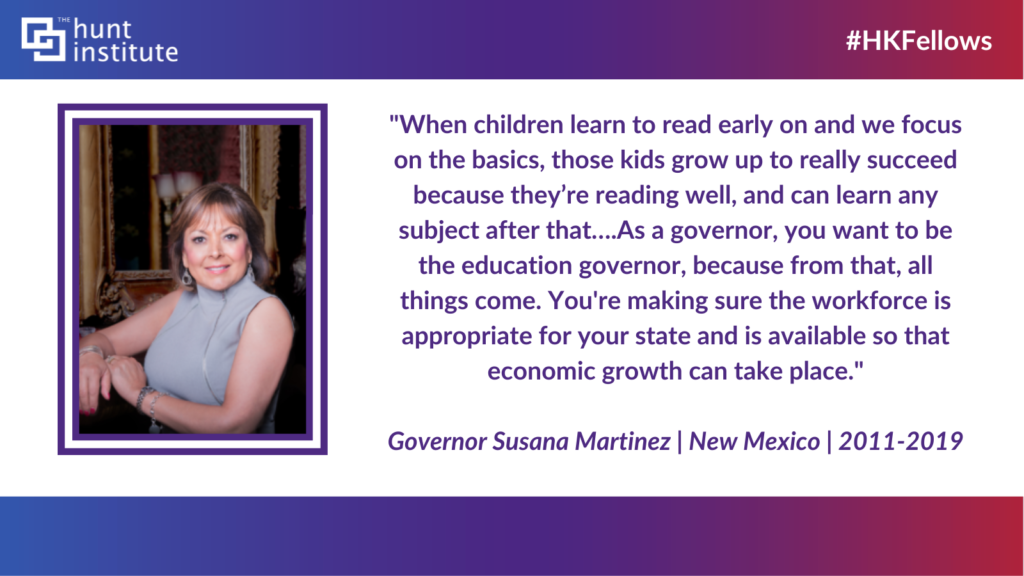
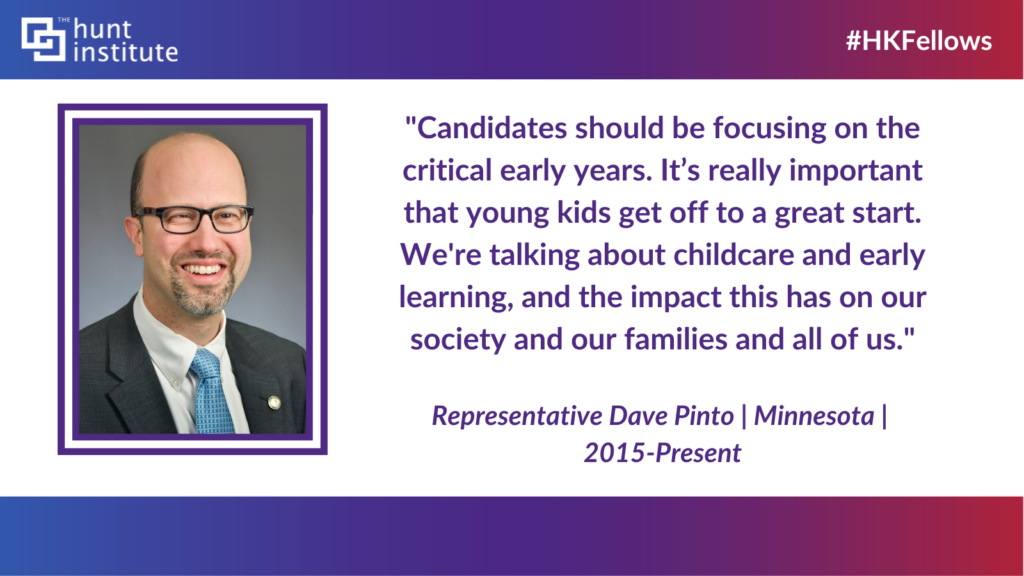
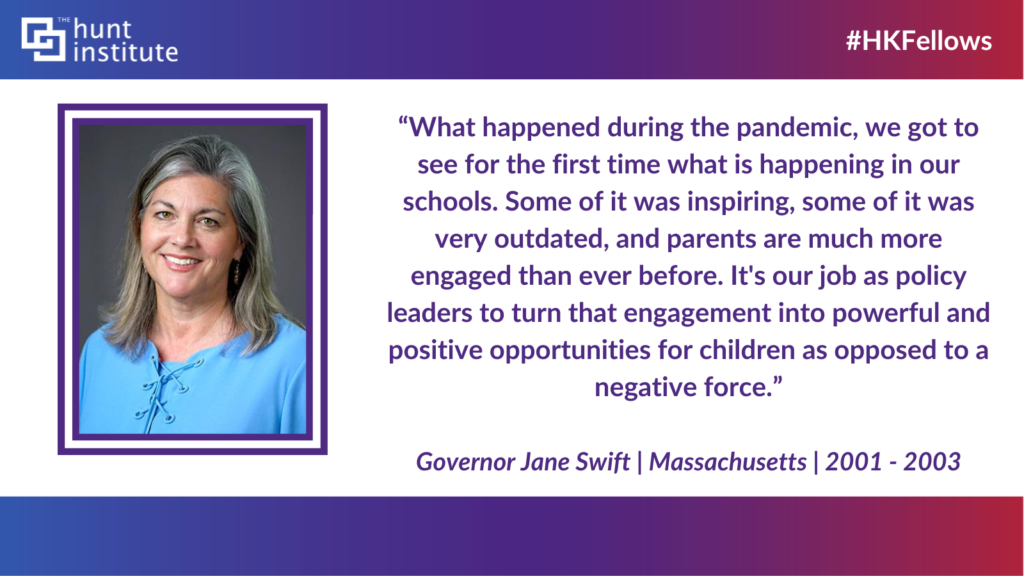
Our HK Fellows and Advisory Board Members understand the importance of reaching across the aisle on key educational issues to ensure we are supporting policies that will lead to improved outcomes for all students. As candidates and newly elected officials make their case and build out their educational priorities in the coming months, it is important that they understand the once-in-a-lifetime opportunity we have to implement meaningful, nonpartisan educational change – and that together, we have the power to build a strong future for our children and our country.